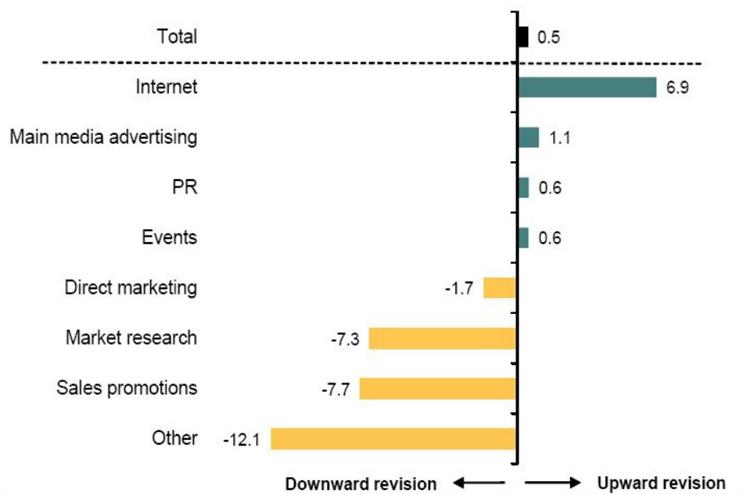
The report revealed that event marketing budgets rose by 0.6%, which represents the smallest growth in nine quarters.
Timing and seasonal spend
Will Mould, managing director at XYZ, believes one-off or annual, web focused events contributed to the decline in spend over the period. "Given the huge rise in seasonal online spending that is now augmented by events such as Black Friday it’s not really a surprise that brands increase their e-commerce spend for a quick hit, likely at the expense of their experiential spend in Q4," he explains.
Mike White, co-founder of Itch, attributes the results to the fact that brands are spending more time in the planning phase. "We are usually planning and developing strategies in Q4, however nearly all our conversations and work have moved into Q1 of 2016," he says.
"It’s also the end of the financial year for a lot of business meaning there is even more pressure to hit targets, so costs are now being tightened a lot more at the end of the year."
Amplify's managing director Lee Avery agrees timing could have played a part in brands' spending behaviour during the quarter. "Regarding the slight drop off for Q4 it could simply be a mixture of an unfavourable time of year in the consumer and retail space, and a focusing of minds in readiness for the Olympics and Euro 2016 this summer."
Experiences must extend beyond the physical
Internet marketing once again enjoyed the highest growth, posting a +6.9% increase over the period, so it comes as no surprise that agencies are aware that the medium is on the rise.
White explains Itch has been changing it up in recent years to accommodate growth within the category "We’ve been remodelling our business for the last three years to factor this change into out offering. Our whole new proposition is aimed at an experience being both physical and digital, and we have built up our content and digital offering to do just this.
"We believe, and we’ve seen it happen with our briefs, that the digital offering is just as important when creating an event," he says.
Avery recognises that brands no longer simply use social media to reach consumers organicaly, they view the networks as spaces to buy media - thus leading to an increase in online spend.
"With increased budgets comes greater competition, so delivering rich, relevant and engaging campaigns will be more important than ever. The industry needs to make sure it’s not just creating content for content’s sake and look to engagement rather than views as the measure of success," he explains.
"So what does this all mean for the experiential industry? Digital amplification works hand in hand with experiences, generating rich content and creating lasting connections with far more people than those that attend events. In this context, ensuring campaigns are integrated and allocating budget to online marketing that amplifies physical experiences is a no-brainer."
Mould agrees, and cites XYZ's recent experiences with client Nike as an example. "Our work with Nike over the last year has shown the importance of providing richer experiences through events in support of digital campaigns," he says.
"It really helps to amplify the power of the campaign message. I think the two disciplines will and should continue to work hand in hand moving forward."
The industry’s 2016 budget predictions
Mould predicts that a particular set of events will help to lift event marketing budgets this year. "Major sporting event years such as 2016, where there is the Rio Olympics and Euro 2016 usually see the larger companies, such as those in retail and utilities, using them as rallying calls for their brands. We therefore expect to see a reasonable uplift in budgets for 2016," he says.
Avery agrees that sport will help to drive marketing spend within events this year. "Overall, it’s an exciting time for the industry with a packed summer of sport to look forward to. Given the last few years have been positive for us with increased spend, we remain optimistic for the year ahead."
White’s experiences so far this year similarly point to a positive outlook. "From the demand we’ve already has in the first few weeks of 2016 I believe its going to be a good year. The budgets are out there however there is still a challenge to ensure people see the live experience as a key channel in the media planning cycle," he says.
"It’s our job to ensure we promote the value through the live event. Dwell time is extremely important and we can increase the dwell time and views around content if the investment is there," he explains.
More: View the findings of the .
Comment below to let us know what you think.
For more in-depth and print-only features, showcases and interviews with world-leading brands, don't miss the next issue of Event magazine by .

